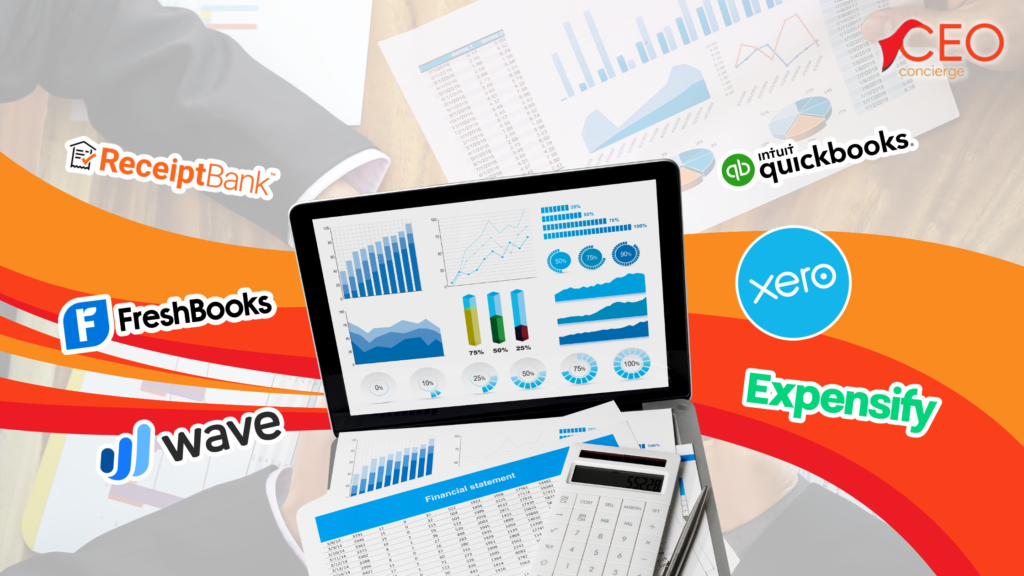Year-End Financial Prep: How Virtual Assistants Get You Ready for Taxes After the Holidays
The end of the year brings festive celebrations, family gatherings, and moments of reflection. But for business owners and entrepreneurs, it also signals the arrival of tax season. As you juggle year-end festivities, the thought of diving into financial documents and preparing for taxes can be overwhelming. This is where a Virtual Assistant can step in and make the process seamless, efficient, and stress-free. Whether you’re a small business owner or a solopreneur, a skilled Virtual Assistant can transform tax preparation into a manageable task, allowing you to focus on growth and planning for the new year.
In this article, we’ll explore how Virtual Assistants help with year-end financial prep, the specific tasks they can handle, and the benefits of leveraging their expertise. If you’ve been wondering how to prepare your finances for tax season while enjoying the holidays, this guide is for you.
Read More
Why Tax Preparation is Critical for Entrepreneurs and Business Owners

Preparing for taxes is not just about compliance; it’s about understanding your financial health, identifying savings opportunities, and avoiding costly penalties. For entrepreneurs and small business owners, the stakes are even higher. Filing accurate taxes can determine whether your business stays profitable or struggles with unexpected liabilities.
However, managing receipts, invoices, and financial statements can become an overwhelming chore, especially during the holiday season. This is where hiring a Virtual Assistant can make a difference. Their ability to organize and streamline financial processes can save you hours of effort and provide peace of mind.
Tax preparation also gives entrepreneurs insight into their financial performance over the year. By analyzing income streams, expenses, and tax obligations, you can identify areas for growth and improvement. Proper preparation minimizes the risk of audits and penalties while ensuring you take full advantage of deductions and credits. Hiring a Virtual Assistant allows you to focus on strategy instead of administrative tasks, helping you navigate tax season with confidence.
Entrepreneurs often face unique challenges, such as managing multiple income sources, tracking business expenses, and ensuring compliance with changing tax laws. A Virtual Assistant with financial expertise can ease these burdens. They can help you categorize expenses, reconcile accounts, and maintain accurate records—all of which are crucial for a smooth tax filing process. Ultimately, this support enables you to maintain profitability and reduce financial stress, even during the busiest times of the year
The Role of a Virtual Assistant in Year-End Financial Preparation
A Virtual Assistant isn’t just an administrative helper; they are your secret weapon for staying organized and ahead of deadlines. When it comes to year-end financial prep, Virtual Assistants bring a wealth of skills to help you:
1. Organize Financial Records
One of the most daunting parts of tax preparation is gathering all your financial documents. A Virtual Assistant can:
- Categorize and file receipts, invoices, and expense reports.
- Create an organized digital archive of financial documents.
- Ensure compliance with IRS requirements for recordkeeping.
2. Track Income and Expenses
Knowing where your money is coming from and where it’s going is critical for accurate tax filing. A Virtual Assistant can:
- Use tools like QuickBooks, Xero, or Wave to track financial transactions.
- Generate income and expense reports.
- Identify discrepancies or missing data.
3. Reconcile Bank Statements
Reconciling bank statements is essential to ensure your financial records align with your business accounts. Virtual Assistants can:
- Match transactions with receipts and invoices.
- Flag inconsistencies for review.
- Provide a final reconciled statement for your accountant.
How Virtual Assistants Streamline Tax Filing
Once your financial records are organized, the next step is preparing the necessary documents for tax filing. Virtual Assistants can work closely with your accountant to ensure everything is in order. Here are some ways they simplify the process:
1. Prepare and Organize Tax Documents
A Virtual Assistant can:
- Compile W-2s, 1099s, and other income documents.
- Organize expense categories for deductions (e.g., travel, marketing, supplies).
- Create detailed spreadsheets of deductible expenses.
2. Manage Deadlines and Filings
Staying on top of deadlines is critical during tax season. A Virtual Assistant can:
- Set reminders for tax-related due dates.
- File necessary forms or ensure they’re submitted to your accountant on time.
- Track quarterly tax payments to avoid penalties.
3. Conduct Pre-Tax Season Audits
Before filing taxes, a Virtual Assistant can perform a pre-tax season audit. This includes:
- Cross-checking financial records for accuracy.
- Identifying potential deductions or credits.
- Highlighting areas that may require further review.
4. Assist with Document Submission
In addition to preparing documents, a Virtual Assistant can ensure they are submitted on time. They can coordinate with accountants and tax preparers to avoid last-minute rushes.
By taking care of these tasks, Virtual Assistants minimize errors, ensure compliance, and help you file taxes on time without unnecessary stress.
Key Tools and Software Virtual Assistants Use for Financial Prep

A proficient Virtual Assistant is skilled in using modern tools to streamline your financial processes. Here are some tools they may use:
1. Accounting Software
- QuickBooks
- Xero
- FreshBooks
2. Document Management Tools
- Google Drive
- Dropbox
- Evernote
3. Expense Tracking Apps
- Expensify
- Receipt Bank
- Wave
These tools allow your Virtual Assistant to work efficiently, collaborate with you and your accountant, and ensure all financial data is accurate and accessible.
Benefits of Hiring a Virtual Assistant for Tax Preparation
The advantages of hiring a Virtual Assistant for year-end financial prep go beyond just saving time. Here are the key benefits:
1. Save Time and Reduce Stress
Tax preparation can take hours, if not days, of your valuable time. A Virtual Assistant can handle the heavy lifting, leaving you free to focus on strategic tasks or enjoy the holidays.
2. Ensure Accuracy and Compliance
Mistakes in your tax filing can lead to penalties or audits. A Virtual Assistant ensures that your financial records are accurate and compliant with tax laws.
3. Maximize Deductions
By organizing your expenses and identifying deductible categories, a Virtual Assistant helps you maximize your tax savings.
4. Stay Organized Year-Round
While their impact is most noticeable during tax season, a Virtual Assistant’s efforts can help you maintain organized finances throughout the year, making future tax prep even easier.
How to Choose the Right Virtual Assistant for Financial Prep
Not all Virtual Assistants are created equal. When hiring someone to help with tax preparation, consider these factors:
1. Financial Expertise
Look for Virtual Assistants with experience in bookkeeping, accounting, or tax preparation. Certifications or knowledge of accounting software is a plus.
2. Attention to Detail
Accuracy is critical in financial tasks. A detail-oriented Virtual Assistant can spot errors and ensure your records are flawless.
3. Communication Skills
Your Virtual Assistant should be able to collaborate effectively with you and your accountant. Clear communication ensures tasks are completed correctly and on time.
4. Security and Confidentiality
Your financial data is sensitive. Ensure your Virtual Assistant follows strict security protocols and signs a confidentiality agreement.
How Virtual Assistants Help You Plan Ahead for the Next Tax Season
Once this year’s taxes are filed, a Virtual Assistant can help you implement systems to make next year’s tax preparation even easier:
1. Set Up Automated Expense Tracking
Your Virtual Assistant can integrate tools like QuickBooks or Wave to automatically track and categorize expenses.
2. Maintain Monthly Financial Reviews
Regular financial reviews ensure that you’re always aware of your income, expenses, and cash flow.
3. Organize Tax-Saving Strategies
Your Virtual Assistant can collaborate with your accountant to implement tax-saving strategies, such as retirement contributions or charitable donations.
Conclusion
The holiday season doesn’t have to mean chaos for your financial records. By hiring a Virtual Assistant, you can enjoy your celebrations while knowing that your year-end financial prep is in capable hands. From organizing receipts to filing tax documents, Virtual Assistants simplify the process, save you time, and help you avoid costly mistakes.
As tax season approaches, consider the value of having an expert Virtual Assistant manage your financial tasks. Their support not only ensures a stress-free tax preparation experience but also sets the foundation for better financial management in the year to come.
Ready to get started? Partner with a skilled Virtual Assistant today and turn tax season into a smooth and worry-free process.
